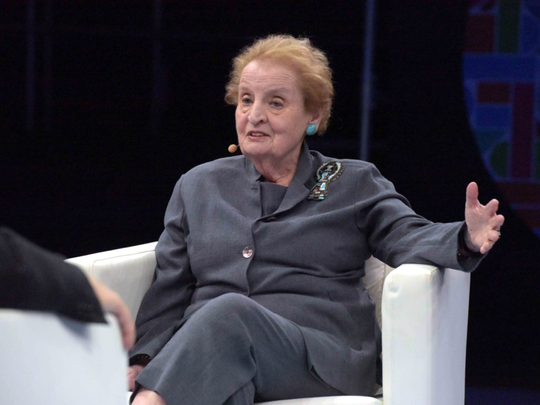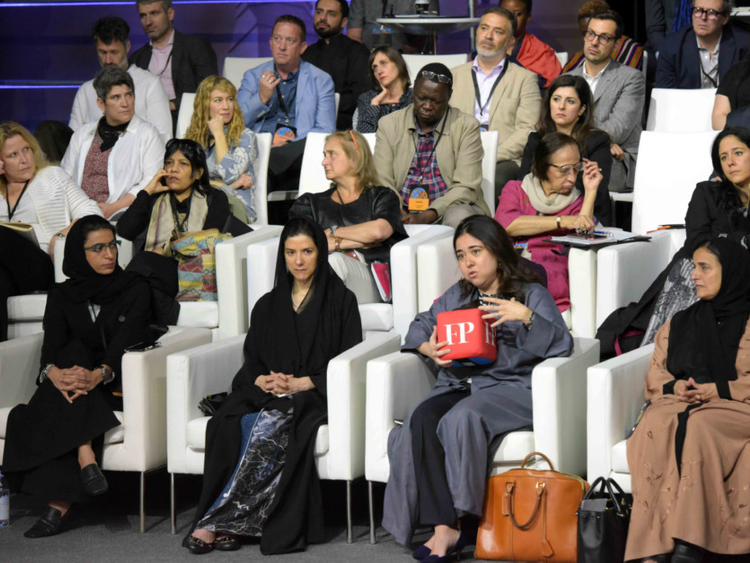
Abu Dhabi: Since its opening day on Sunday, the Cultural Summit in the capital has been bringing some of the world’s greatest minds together, in an effort to open dialogue and find resolutions to some of the world’s most pressing issues, through panel discussions and workshops.
While all sessions at the summit have been fruitful and thought provoking, one speaker prompted a spontaneous standing ovation from the audience and that was this morning (Wednesday) when Madeleine Albright walked in to have a conversation under the narrative ‘The Arts and Advocacy: Confronting the Challenges of Our Time’.
As Albright, the first woman to become the US Secretary of State, sat with the event’s moderator, David Rothkopf, CEO and Editor of Foreign Policy (FP), it became clear almost immediately why she was presented with a Cultural Diplomacy award the previous evening, it was part of everything she did and even wore.
The session began with a simple conversation around a broach she was wearing, which Albright said was made by native Americans, and a deliberate attempt on her part to start conversations and celebrate cultures.
“When we were doing cultural diplomacy, when I was in office, and we had an event at the White House, I wore one of my Native American pins. I think it’s a good thing to celebrate our culture.
“It helps me explain that foreign policy doesn’t have to be so foreign.”
The half-an-hour session was filled by Albright telling a number of stories from her days in office, including how President Bill Clinton’s love for saxophones drew foreign leaders to open dialogue with him using the instrument and even got Vladimir Putin to invite the president to a jazz performance. However, current cultural divides in the world, specially in Europe and the US, dominated the heart of the stories.
She said she viewed two megatrends — globalisation and technology — to the current state of the world’s cultural divides.
“Globalisation — it is an attempt at opening and understanding each other but it does have a downside to it because, in so many ways, it’s faceless. People don’t know where they belong in it and so they begin to join by identity,” she said.
Albright explained that while there was nothing wrong with identifying with each other but it became dangerous when the narrative changed and “my identity hates your identity”.
“Patriotism is one thing but hyper-nationalism is very dangerous. And we are seeing that in a number of places.”
“Technology is the other megatrend that has connected everybody. What has also done is disaggregated voices … There are things that are making this (cultural divides) worse,” she said.
“The question is how do we get out of this phase and still have our identities without deciding that we don’t want to talk to people next door?”
While pointing out that there were political leaders who dislike anyone who “does not look like them”, she stressed that it was something that “we have to push against”.
Albright also spoke extensively about how partnerships and understanding each other was at the heart of resolving issues and the best way forward was through culture.
“I think cultural routes are the best ones, because they are not threatening. It’s a way of enjoying and understanding and meeting people through a language that they want to express themselves.”
The session ended as it began, another spontaneous standing ovation and loud cheers for a woman who is seen by many as bringing about real political change using culture as her tool.












